International
Fujimori edges ahead of Castillo in tight Peru presidential vote

AFP/Editor
Right-wing populist Keiko Fujimori held a narrow lead over radical leftist Pedro Castillo following a partial vote count in Peru’s presidential election on Sunday.
With 52.9 percent of the vote counted after 42 percent of polling stations were tallied, Fujimori edged ahead in a seesaw battle for the presidency after Ipsos pollsters declared a “statistical draw” following an earlier exit poll and quick count.
Peru’s new leader will need to tackle a country in crisis, suffering from recession and with the worst coronavirus fatality rate in the world after recording over 184,000 deaths among its 33 million population.
Peruvians will also look to the winner to end years of political turbulence after four presidents in the last three years, and with seven of the last 10 of the country’s leaders either having been convicted of or investigated for corruption.
Piero Corvetto, head of Peru’s top electoral body (ONPE) warned that many polling stations from rural areas — Castillo’s stronghold — had yet to be tallied.
“They haven’t counted our votes yet,” Castillo told supporters in Tacabamba, in the northern Cajamarca region where he lives.
An exit poll by Ipsos after voting ended at 7:00 pm (0000 GMT) showed Fujimori just ahead with 50.3 percent, sparking protests from Castillo supporters outside the ONPE offices in the capital Lima.
But three hours later the pollsters released a quick count that showed Castillo in front with 50.2 percent, bringing scenes of joy and celebrations to the northern Cajamarca region.
Castillo, 51, had earlier urged his supporters to “stay calm.”
“Seeing how small the gap is, it is essential to maintain prudence and I say that for all Peruvians,” added Fujimori, who had earlier been seen hugging family and campaign staff following the exit poll.
Both candidates promised to respect the results when voting earlier in the day.
– ‘Too tight’ –
“We’re not going to know (the winner) until the last vote” is counted, political scientist Jessica Smith told AFP.
“It’s still very unsure, the difference is too tight and we have to wait for the official result.”
Castillo, 51, had topped the first round of voting in April, when the pair both caused a surprise by reaching the second round, and he was also narrowly ahead in the latest opinion polls before Sunday’s vote.
At the height of the political storm in November last year, Peru had three different presidents in just five days.
Two million Peruvians have lost their jobs during the pandemic and nearly a third of the country now live in poverty, according to official figures.
For voters, this was a choice between polar opposites.
Fujimori, 46, represents the neoliberal economic model of tax cuts and boosting private activity to generate jobs.
Fujimori’s bastion is the capital Lima, while Castillo’s bulwark is the rural deep interior.
Trade unionist schoolteacher Castillo has pledged to nationalize vital industries, raise taxes, eliminate tax exemptions and increase state regulation.
He voted in Tacabamba following a breakfast with his family.
Favored by the business sector and middle classes, Fujimori tried to portray Castillo as a communist threat, warning that Peru would become a new Venezuela or North Korea should he win.
Castillo pointed to the Fujimori family’s history of corruption scandals. Keiko Fujimori is under investigation over campaign funding in her 2011 and 2016 presidential bids and has already spent 16 months in pre-trial detention.
Her father is serving a 25-year sentence for crimes against humanity and corruption.
– ‘It won’t be easy’ –
“If Keiko is eventually elected, you can’t forget that this 50 percent is not her real support but rather a reaction from an electorate that is afraid of what her opponent represents,” Smith told AFP.
Whoever wins will have a hard time governing as Congress is fragmented. Castillo’s Free Peru is the largest single party, just ahead of Fujimori’s Popular Force, but without a majority.
“It won’t be easy (for Fujimori) given the mistrust her name and that of her family generates in many sectors. She’ll have to quickly calm the markets and generate ways to reactivate them,” added Smith.
If Castillo triumphs, he’ll have to “consolidate a parliamentary majority that will allow him to deliver his ambitious program.”
But in either case “it will take time to calm the waters because there’s fierce polarization and an atmosphere of social conflict,” analyst Luis Pasaraindico told AFP.
Some 160,000 police and soldiers were deployed to guarantee peace on election day as 25 million people were due to vote, plus another one million from the Peruvian diaspora living in 75 countries around the world.
The new president will take office on July 28, replacing centrist interim leader Francisco Sagasti.
International
Federal immigration agents kill man in Minneapolis, sparking protests and outrage

Federal immigration agents shot and killed a 37-year-old Minneapolis man during an operation on Saturday, authorities confirmed, sparking new protests and deepening outrage over federal immigration enforcement in the city.
The victim, identified as Alex Jeffrey Pretti, was a U.S. citizen and intensive care nurse who worked at a Veterans Affairs hospital and was widely respected in his community, according to colleagues and news reports.
Officials said the shooting occurred during a targeted immigration raid in south Minneapolis. The Department of Homeland Security (DHS) described the incident as an act of self-defense by agents who believed the man posed a threat.
However, videos reviewed by multiple outlets and eyewitnesses show Pretti holding a phone and not displaying a weapon before being pepper-sprayed, tackled by agents and then shot multiple times, raising serious questions about the official account.
The killing comes amid a broader federal immigration enforcement operation in the city and follows another controversial shooting in early January in which Renée Good, a 37-year-old U.S. citizen, was fatally shot by an ICE agent, leading to widespread protests and criticism of federal tactics.
International
Delcy Rodríguez seeks political agreements after Maduro’s ouster
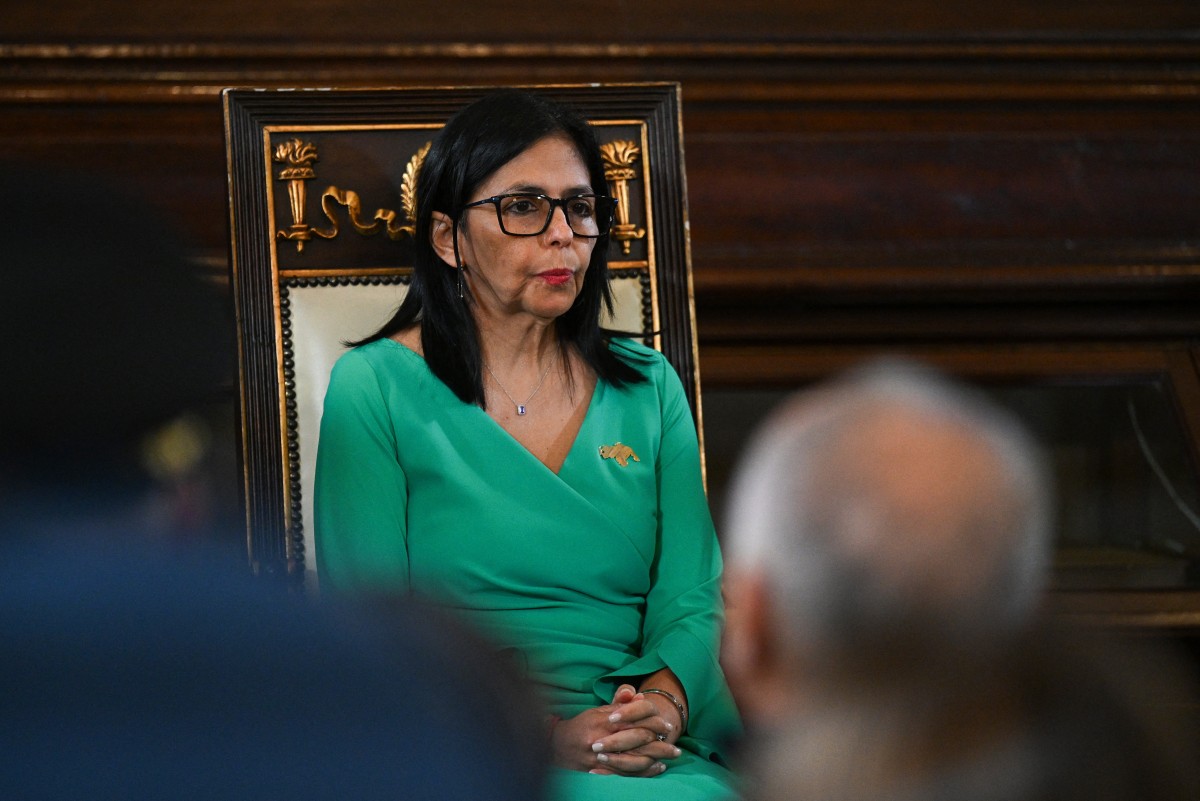
Venezuela’s interim president, Delcy Rodríguez, on Saturday called for “reaching agreements” with the opposition to achieve “peace” in the country, which the United States says it now controls following the military operation that removed President Nicolás Maduro from power.
Rodríguez, who previously served as Maduro’s vice president, assumed interim leadership after the leftist leader was captured on January 3 during a military incursion that left nearly 100 people dead.
In her first public statements since taking office, Rodríguez signaled a shift in the strained relationship between Caracas and Washington, while also committing to the release of a “significant number” of political prisoners.
“There can be no political or partisan differences when it comes to the peace of Venezuela,” Rodríguez said during an address in the coastal state of La Guaira, broadcast on state television VTV.
“From our differences, we must speak to one another with respect. From our differences, we must meet and reach agreements,” she added.
The day before, Rodríguez instructed the head of Parliament — her brother Jorge Rodríguez — to convene talks with various political sectors in the country aimed at achieving “concrete and immediate results.”
International
Bogotá and Quito Seek Dialogue After Tariffs and Power Cut Escalate Tensions
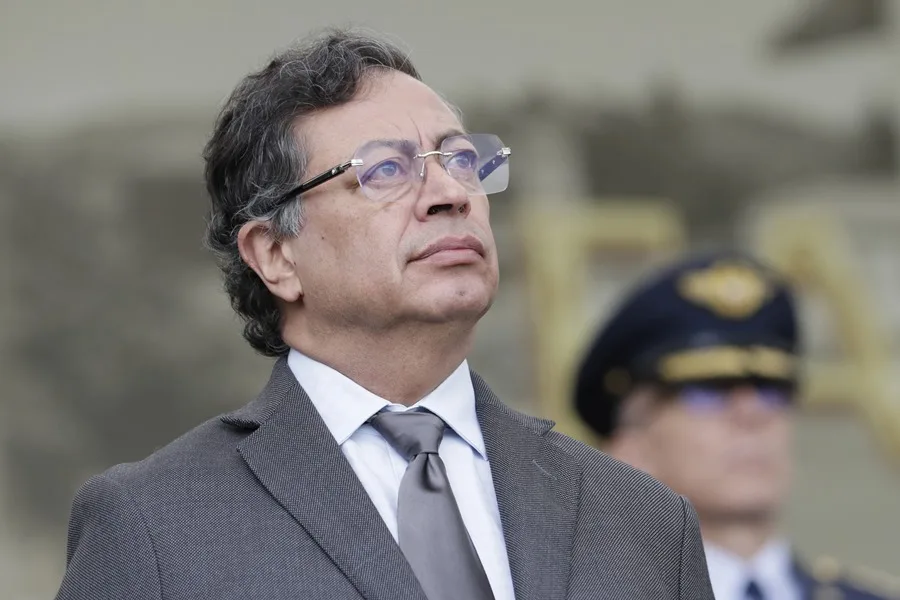
Bogotá and Quito will hold an emergency bilateral summit next week amid recent developments that have strained relations between the two countries.
Tensions escalated this week after Ecuadorian President Daniel Noboa unexpectedly announced a 30% tariff on Colombian imports. Colombia responded with a reciprocal measure, imposing the same tariff on around 20 Ecuadorian products and suspending electricity exports to Ecuador.
Aware that electricity imports are critical to easing Ecuador’s recent energy crises, Quito further imposed a 30% tariff on the transportation of Colombian oil through its territory.
However, recent statements from the Ecuadorian government suggest that dialogue between the two sides has intensified in recent hours. Ecuador’s Minister of Foreign Affairs, Gabriela Sommerfeld, confirmed that active conversations are under way.
In Colombia, segments of the business sector have welcomed the prospect of negotiations. The National Business Council (Consejo Gremial Nacional, CGN), for instance, urged both governments to restore commercial relations, warning that the dispute “puts jobs and regional economic stability at risk.”
-
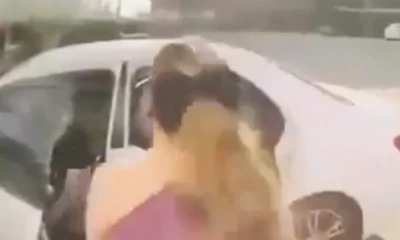
 International4 days ago
International4 days agoMexican influencer “La Nicholette” kidnapped in exclusive area of Culiacán
-

 Central America3 days ago
Central America3 days agoMazatenango Carnival cancelled amid State of Siege in Guatemala
-

 International3 days ago
International3 days agoTrump to invite Venezuela’s interim president Delcy Rodríguez to Washington
-
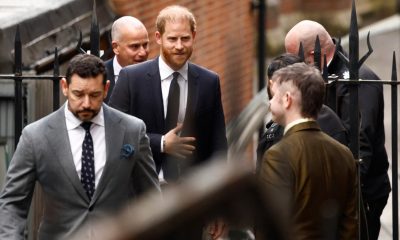
 International5 days ago
International5 days agoDaily Mail publisher insists reports relied on legitimate sources amid privacy trial
-

 International4 days ago
International4 days agoMajor winter storm to blanket U.S. and Canada with snow, ice and arctic cold
-

 International3 days ago
International3 days agoMarkets rise as Trump halts Europe tariffs and floats Greenland agreement framework
-

 International5 days ago
International5 days agoGermany says football bodies alone will decide on possible World Cup boycott
-
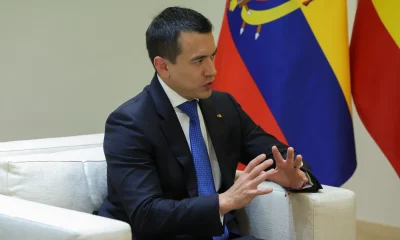
 International4 days ago
International4 days agoColombia slams Ecuador’s 30% tariff as ‘economic aggression’
-

 International4 days ago
International4 days agoTrump announces preliminary NATO agreement on Greenland, suspends tariffs on Europe
-

 International3 days ago
International3 days agoVenezuela’s interim president predicts 37% increase in revenues for 2026
-

 International3 days ago
International3 days agoJapan reopens Kashiwazaki-Kariwa Plant despite public concerns
-

 Internacionales2 days ago
Internacionales2 days agoMajor winter storm threatens “catastrophic” ice and snow across much of the U.S.
-

 International1 day ago
International1 day agoTrump-Era Defense Plan Prioritizes Border Security and Scales Back Global Commitments
-

 International3 days ago
International3 days agoFour minors killed in deadly clash between FARC dissidents in Colombia’s Amazon
-
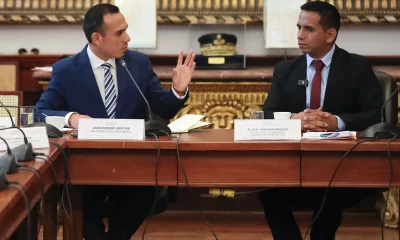
 International4 days ago
International4 days agoJosé Jerí claims destabilization attempt after videos of secretive meetings surface
-

 International2 days ago
International2 days agoGuatemala considers sending high-risk gang members to military prisons
-

 Central America2 days ago
Central America2 days agoGuatemala’s president rules out negotiations with inmates after prison riots
-

 International1 day ago
International1 day agoBogotá and Quito Seek Dialogue After Tariffs and Power Cut Escalate Tensions
-

 International2 days ago
International2 days agoRights group says over 5,000 killed in Iran protests, mostly civilians
-

 International1 hour ago
International1 hour agoDelcy Rodríguez seeks political agreements after Maduro’s ouster
-

 International1 hour ago
International1 hour agoFederal immigration agents kill man in Minneapolis, sparking protests and outrage


























